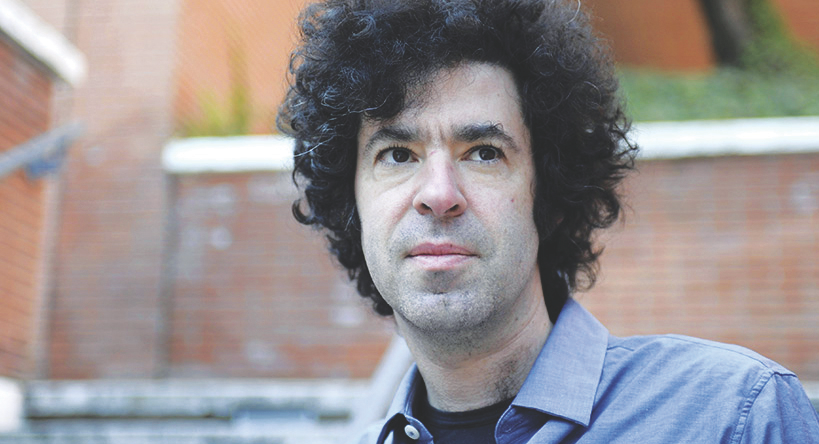
Courtesy of Tania/A3
Yale Philosophy professor Jason Stanley recently drew national attention for his strong response to a keynote address at the Society of Christian Philosophers’ regional conference Sept. 24 to 26.
“Having homosexual orientation is a disability — for a homosexual cannot beget children through a loving act with a person to whom they have a unique lifelong commitment. Of course some homosexuals do not want to beget children, but the behavior of other homosexuals indicates that they clearly do; and a disability is a disability whether or not the disabled person minds about it,” Oxford Emeritus professor Richard Swinburne said in the address.
Stanley made a post on Facebook condemning Swinburne that was initially posted to a friend’s private Facebook page but was later circulated on the internet as a screen shot. The post, which included the phrase “F— those a–holes. Seriously,” drew intense criticism, especially from vocal conservative figures like Rod Dreher, who wrote in a Sept. 28 article in The American Conservative that he was outraged at the “reckless judgment, vulgar language and unhinged nature” of Stanley’s remarks.
However, both Stanley and Dreher agree that there is more to the controversy than Stanley’s choice of language. Stanley, who has taught at Yale for three years, framed the incident as a part of the larger “cultural war” between the left and the right, but Dreher regarded Stanley’s comment as an attack on free speech.
“[The Facebook post] was all a personal exchange between friends,” Stanley said. “My ‘potty words’ were taken completely out of context. ‘Potty words’ are bad, but because I’m a Yale professor, I can’t use them anymore?”
He called the backlash he has received for his comment “horrific,” citing his fear for his family. Stanley, who specializes in the philosophy of language and epistemology, said the current controversy is a continuation of attacks on him after he defended Yale student activists who protested against the controversial email about Halloween costumes last fall. He said his outspoken defense for the students made him a target for right-wing media outlets, adding that he has received hate mail over the past year.
Stanley said the recent reprisal is framed as offense caused by his language on Facebook, but is in fact the design of his “powerful enemies” who he claimed have attacked him in recent years, in retaliation for his open disapproval of their actions. For example, Stanley said, he openly took issues with the Templeton Foundation — one of the most prominent donors in the field of philosophy where Dreher worked as publications director — for what he described as disproportionate funding for religious philosophy and negligence towards studies on racism or homophobia.
But Dreher dismissed Stanley’s belief that he was targeted for his left-leaning political views.
“I thought it was hilarious that he assumes only a vast right-wing conspiracy could possibly account for people outside his bubble noticing what he said and drawing negative conclusions from it,” Dreher told the News.
Instead, Dreher argued that at the crux of the controversy was a threat to freedom of expression.
Swinburne’s speech represents “perfectly ordinary” Christian philosophy, said Dreher, an Orthodox Christian . He added that the nature of Stanley’s Facebook comment is precisely the type of discourse that “[makes] reasoned discussion and debate impossible.”
“[The comments] were yet another example of the arrogant, moralistic privilege that certain left-wing professors exercise to insult, bully and marginalize those who disagree with them,” Dreher said.
Dreher said in his article that “ideologues” like Stanley who hold influence within humanities departments are pushing their own agendas while evaluating opposing views with the same type of intolerance that they claim to be fighting.
Swinburne said he was unaware of Stanley’s comment and the following backlash and he preferred to leave others to defend him in this matter. This was not the first time that he had expressed “fairly unpopular views,” Swinburne said, but he could not recall a time when he received a public reaction similar to Stanley’s.
“Philosophers usually argue rather than use expletives,” Swinburne said. “But I’ll leave your readers to decide whether this was the suitable response from a philosopher.”
Stanley is currently teaching “Language and Power” and a philosophy section of Directed Studies.







